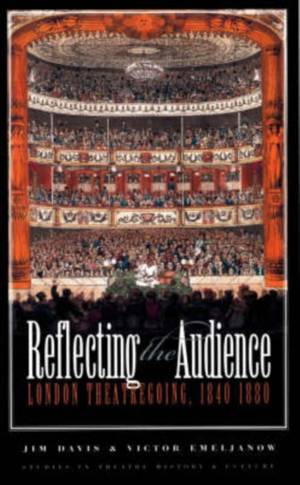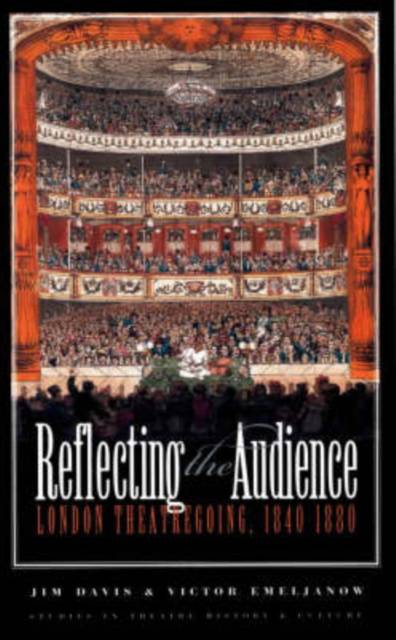
- Retrait gratuit dans votre magasin Club
- 7.000.000 titres dans notre catalogue
- Payer en toute sécurité
- Toujours un magasin près de chez vous
- Retrait gratuit dans votre magasin Club
- 7.000.0000 titres dans notre catalogue
- Payer en toute sécurité
- Toujours un magasin près de chez vous
Description
This innovative work begins to fill a large gap in theatre studies: the lack of any comprehensive study of nineteenth-century British theatre audiences. In an attempt to bring some order to the enormous amount of available primary material, Jim Davis and Victor Emeljanow focus on London from 1840, immediately prior to the deregulation of that city's theatres, to 1880, when the Metropolitan Board of Works assumed responsibility for their licensing. In a further attempt to manage their material, they concentrate chapter by chapter on seven representative theatres from four areas: the Surrey Theatre and the Royal Victoria to the south, the Whitechapel Pavilion and the Britannia Theatre to the east, Sadler's Wells and the Queen's (later the Prince of Wales's) to the north, and Drury Lane to the west.
Davis and Emeljanow thoroughly examine the composition of these theatres' audiences, their behavior, and their attendance patterns by looking at topography, social demography, police reports, playbills, autobiographies and diaries, newspaper accounts, economic and social factors as seen in census returns, maps and transportation data, and the managerial policies of each theatre.
Spécifications
Parties prenantes
- Auteur(s) :
- Editeur:
Contenu
- Nombre de pages :
- 316
- Langue:
- Anglais
- Collection :
Caractéristiques
- EAN:
- 9780877457817
- Date de parution :
- 01-10-01
- Format:
- Livre relié
- Format numérique:
- Genaaid
- Dimensions :
- 146 mm x 287 mm
- Poids :
- 562 g

Les avis
Nous publions uniquement les avis qui respectent les conditions requises. Consultez nos conditions pour les avis.






